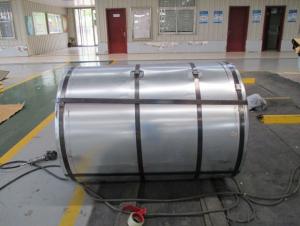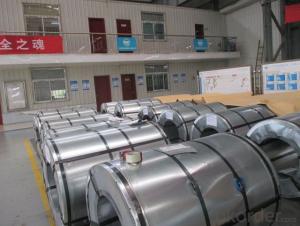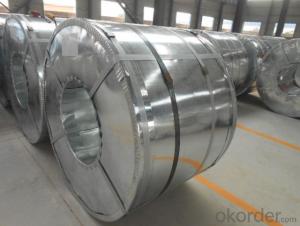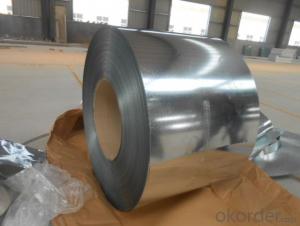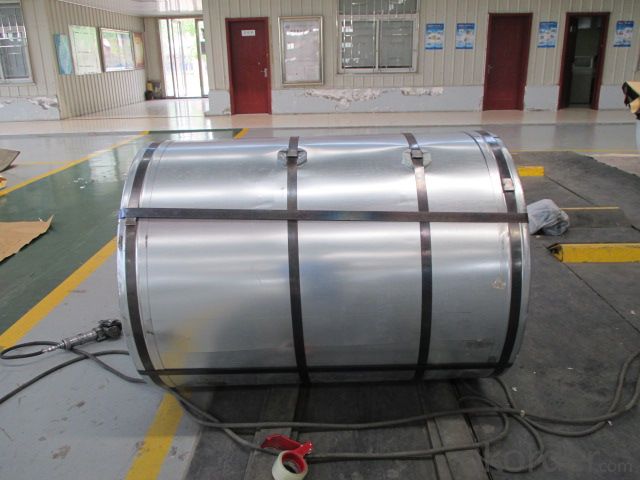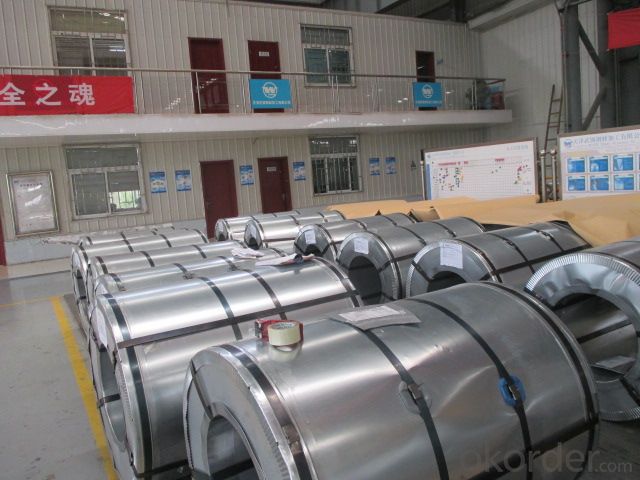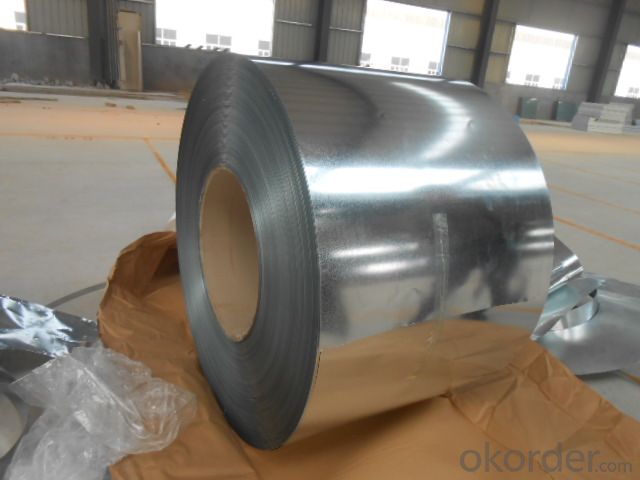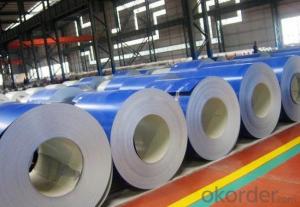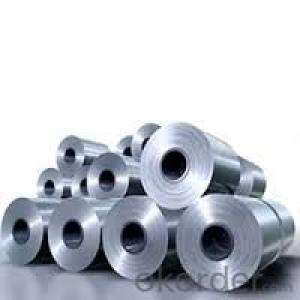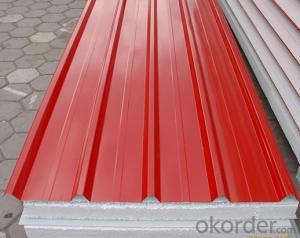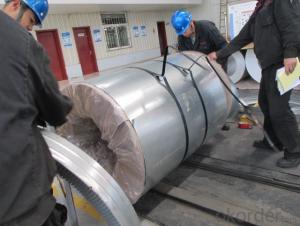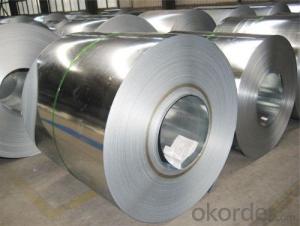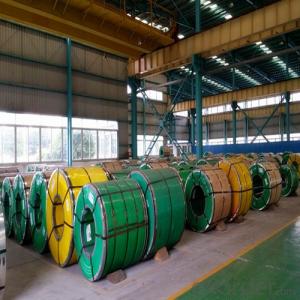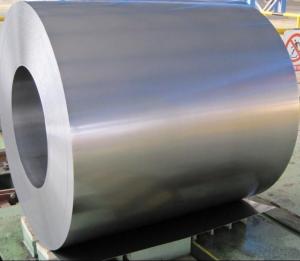STAINLESS STEEL COILS thickness 2.3mm
- Loading Port:
- China Main Port
- Payment Terms:
- TT OR LC
- Min Order Qty:
- -
- Supply Capability:
- -
OKorder Service Pledge
OKorder Financial Service
You Might Also Like
STAINLESS STEEL COILS
Packaging & Delivery
Packaging Detail: seaworthy export package
Delivery Detail: on request
Specifications
1. more than 10 years’ experience on this field
2. advanced equipments
3. competitive price
4. soonest delivery
Product Description :
Commodity
STAINLESS STEEL COILS
Technical Standard: Steel Grade &Standard:J1
Surface Treatment:NO.1
Hot rolled Annealed and Pickled(HRAP)
Grade: J1 , Prime quality
Mill Edge. No connection point in each coil.Component: Ni:1% , Cu: 0.65-0.9%, Cr: 13%, Mn: 10–12%, C: 0.09-0.12%
Package:Properly packed for ocean freight exportation in 20''container
Application::home appliances, constructions, building, machineries
Our Advantages :
1. Expertise:
More than 10 years of manufacture: we know how to properly handle every step of production.
2. Competitive price:
We can offer competitive prices to our customers.
3. Accuracy:
We have excellent technicians and leaders, which can ensure our products are exactly what you want.
4. Materials:
All steel coils are made of high-quality raw materials.
5. Certificate:
Our products are certified by ISO9001.
6. Productivity:
We have large-scales of production lines,, which can guarantee all your orders will be finished in earliest time.
The furnace heating style: improved Sendzimir heating technology
Hourly output: max.76.3t/h
Process after coating: tension leveling, Passivation or oiling
Our Service
Our quality
Test Equipments of Prepainted Galvanized Steel Coil : Salt-spray tester; Atomic absorption spectrophotometer; Rockwell typer hardness tester; Tensile test machine; Metrohm titration; Laboratory Bend test machine.
Our packing
Properly packed for ocean freight exportation in 20''container, galvanized metal fluted rings on inner and outer edges, galvanized metal & waterproof paper wall protection disk, galvanized metal & waterproof paper around circumference.
R&D department
R&D department concentrates on researching and developing reliable products with best quality. The quality department test and control every process of production to guarantee the best quality of product
- Q: How are steel coils used in the manufacturing of tools and equipment?
- Steel coils are used in the manufacturing of tools and equipment as they are typically shaped and cut into various components such as blades, springs, and handles. These coils provide the necessary strength and durability required for the tools and equipment to withstand heavy usage and perform effectively.
- Q: i have a sword and some knives that have this grade steel. so is it a high grade or low grade? and how can i tell the differance between a high grade and a low grade?
- For throwing knives, 440 isn’t necessarily a bad choice. Does it list whether it is 440c or 440b? That matters somewhat. The advantages of 440 Stainless is that it’s relatively hard (for a stainless), it resists rust significantly, and it’s not so hard that it would shatter or break. On the down side 440 is notorious for not taking or holding an edge, but for a throwing knife, that’s probably not much of an issue. If you’re looking for something to train with, you’re fine here. It’s plenty of steel enough to stick in wood or other targets. Odds are it won't bend if you slam it into some wood. If it lands on concrete, eh, it's going to scratch and all that jazz, and it might hurt the tip if it hits first, but as has been said, you can use a file or grinder to get the tip back.
- Q: How are steel coils used in the production of oil and gas pipelines?
- Steel coils are used in the production of oil and gas pipelines as they are formed into pipes and provide the necessary strength and durability required for transporting these resources over long distances. The coils are uncoiled and then shaped into pipes through a process called pipe forming or rolling, which allows for the creation of seamless or welded pipes depending on the specific requirements. These pipes are then further processed, such as being welded together, coated, or threaded, to ensure their suitability for the transmission of oil and gas. Overall, steel coils play a crucial role in the manufacturing of pipelines by providing the necessary raw material for their construction.
- Q: Can steel coils be coated with scratch-resistant materials?
- Yes, steel coils can be coated with scratch-resistant materials. These materials can provide a protective layer that minimizes the risk of scratches and damage to the steel coils during transportation, handling, and storage.
- Q: What are the main challenges in handling and processing steel coils?
- The main challenges in handling and processing steel coils include their large size and weight, which require specialized equipment and techniques for safe transportation and storage. Coils also tend to have sharp edges, posing a risk of injury. Additionally, maintaining the integrity and quality of the steel during processing can be challenging due to the potential for surface damage, rust, or deformation. Proper handling, storage, and processing techniques are crucial for minimizing these challenges and ensuring the efficient production of steel products.
- Q: What are the different methods of laminating steel coils?
- There are several different methods of laminating steel coils, each with its own advantages and applications. The most common methods include hot rolling, cold rolling, and continuous annealing. Hot rolling is a process in which steel is heated above its recrystallization temperature and then passed through a series of rollers to produce thin sheets or coils. This method is commonly used for producing large quantities of steel with a consistent thickness and surface finish. Hot rolled steel coils are often used in structural applications, such as construction and automotive manufacturing. Cold rolling, on the other hand, involves passing the steel coil through a series of rollers at room temperature. This process not only reduces the thickness of the steel but also improves its surface finish and mechanical properties. Cold rolled steel coils are typically used in industries that require high precision and quality, such as appliance manufacturing, electrical equipment, and automotive components. Continuous annealing is another method of laminating steel coils. It involves heating the steel coil to a specific temperature and then slowly cooling it in a controlled environment. This process helps to relieve internal stresses and improve the steel's mechanical properties, such as strength and ductility. Continuous annealing is often used for producing high-quality steel coils for applications that require superior surface finish and formability, such as automotive body panels and household appliances. Other less common methods of laminating steel coils include electro-galvanizing, which involves coating the steel with a layer of zinc through an electroplating process, and hot-dip galvanizing, where the steel coil is dipped into a bath of molten zinc. These methods are primarily used for corrosion protection and are commonly seen in the construction industry, particularly for outdoor structures and infrastructure. In summary, the different methods of laminating steel coils include hot rolling, cold rolling, continuous annealing, electro-galvanizing, and hot-dip galvanizing. Each method offers distinct benefits and is chosen based on the specific requirements of the application.
- Q: What are the safety standards for steel coil manufacturing?
- The safety standards for steel coil manufacturing include proper handling and storage, regular equipment maintenance, adherence to operational procedures, personal protective equipment usage, and comprehensive training programs for employees. Additionally, safety protocols related to transportation and loading/unloading processes must be followed to ensure a safe working environment.
- Q: I feel really stupid asking this question but i feel like a put metal/steel strings on my classical guitar how do you tell the difference?
- Nylon strings are made of nylon; steel strings are made of .... if you put steel strings on your nylon string (classical style) guitar, you will destroy it. The instrument cannot stand up under the tension required for the strings, they will not fit in the saddle properly, they will cut the nut, and your machine heads may break. ... now if you're asking about the three lowest strings, those are metal wound around nylon on a nylon string guitar.
- Q: How are steel coils used in the production of construction components?
- Steel coils are used in the production of construction components by being processed into various shapes and sizes, such as beams, columns, and plates. The coils are unwound and then cut, bent, or shaped to meet the specific requirements of the construction project. Additionally, the high strength and durability of steel make it a preferred material for construction, ensuring the components can withstand heavy loads and harsh environmental conditions.
- Q: How are steel coils inspected for edge quality?
- Steel coils are inspected for edge quality through a combination of visual inspection and non-destructive testing methods. Visual inspection involves a thorough examination of the edges of the coils to identify any visible defects such as cracks, chips, or uneven edges. This is typically done by trained inspectors who carefully inspect the entire length of the coil. Non-destructive testing methods are also used to detect any hidden defects or imperfections in the edges of the steel coils. These methods include ultrasonic testing and magnetic particle inspection. Ultrasonic testing involves the use of high-frequency sound waves to identify any internal flaws or discontinuities in the steel. Magnetic particle inspection, on the other hand, uses magnetic fields and particles to identify any surface or near-surface defects in the steel. Both visual inspection and non-destructive testing methods play a crucial role in ensuring the edge quality of steel coils. By conducting these inspections, manufacturers can identify and address any defects or imperfections in the edges of the coils, ensuring that they meet the required quality standards.
Send your message to us
STAINLESS STEEL COILS thickness 2.3mm
- Loading Port:
- China Main Port
- Payment Terms:
- TT OR LC
- Min Order Qty:
- -
- Supply Capability:
- -
OKorder Service Pledge
OKorder Financial Service
Similar products
Hot products
Hot Searches
Related keywords
